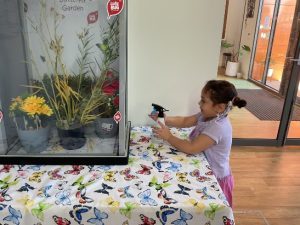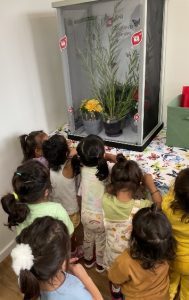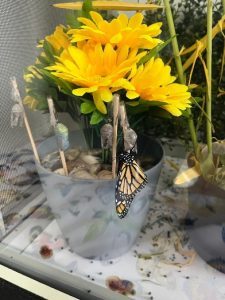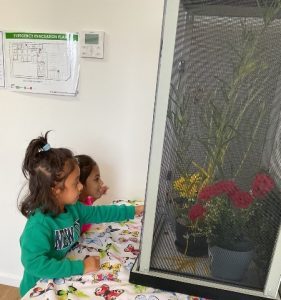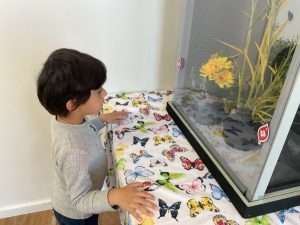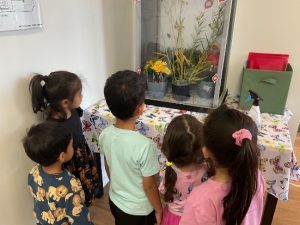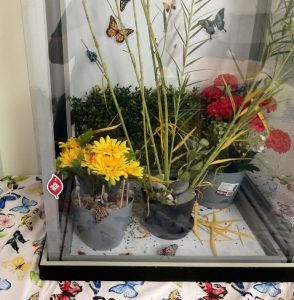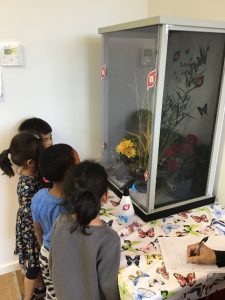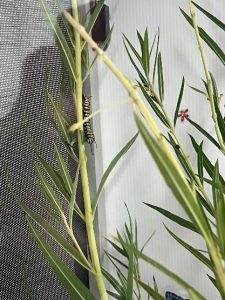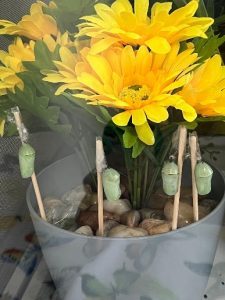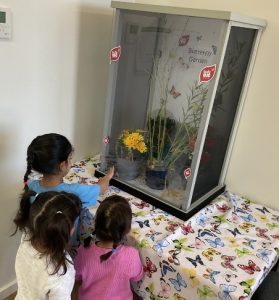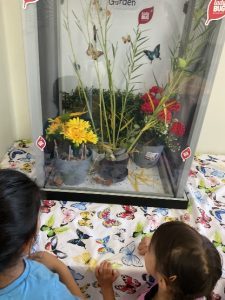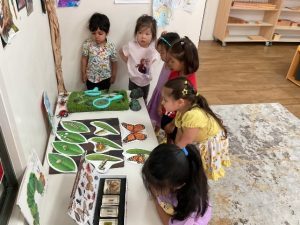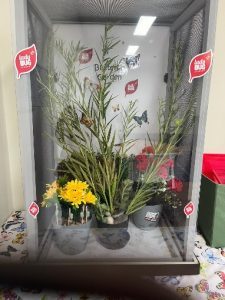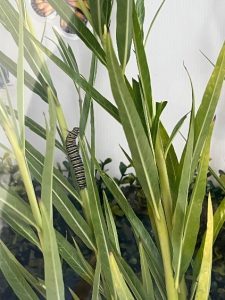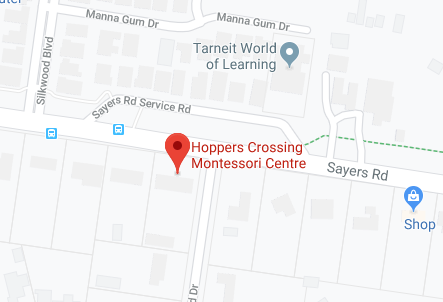Science in a Montessori classroom is hands-on and structured, allowing children to deeply engage with their environment. The Montessori science curriculum fosters active, hands-on learning, particularly through the study of life cycles in Zoology and Botany. In Botany, children explore the intricate growth patterns of plants, while Zoology unveils the fascinating transformations of animals. These immersive experiences nurture curiosity, deepen their connection to nature, and inspire a lifelong sense of wonder. Maria Montessori emphasized the significance of this approach in Education for a New World, recognising its power to cultivate a child’s innate desire to explore and understand the world around them.
“Education is a natural process spontaneously carried out by the human individual and is acquired not by listening to words but by experiences upon the environment.”
At Hoppers Crossing Montessori Centre, we brought learning to life with a butterfly life cycle display. Children eagerly observed as tiny caterpillars ate and grew, formed chrysalises, and eventually emerged as beautiful butterflies. This hands-on experience provided an up-close look at metamorphosis, reinforcing key scientific concepts in an engaging way.
Through direct observation and discussion, children gained a deeper appreciation for nature’s processes and the importance of caring for living things. By immersing children in real-life scientific exploration, we nurture their curiosity, critical thinking, and love for discovery.
